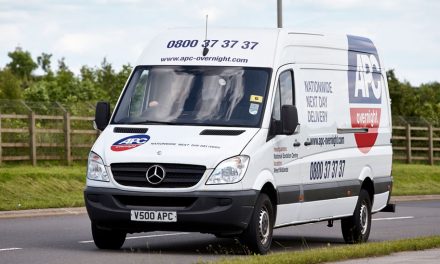
E-commerce: A stark warning
The parcels carrier LYNX Express has issued a stark warning to transport and distribution companies about their capacity to meet the increasing demands placed on them by the growth of e-commerce.
Tim Smith MILT, Director of e-business and e-logisties at Nuneaton-based LYNX Express, believes that very few companies within these sectors are adequately prepared to respond to what is set to become the biggest cultural change ever In the industry.
He says: “The advent of e-commerce and the associated demands being placed on the industry by dot.com companies, means that those companies which are unable to receive business interactively are set to be at an enormous competitive disadvantage.
The pressure is already increasing from client companies and as an industry we have to respond. Whilst the larger players in the market are able to make the necessary investment to stay ahead of the game, there is a very real chance that smaller companies may never get there.”
The large volumes being created by many e-tailers represent major opportunities for companies able to offer a cost-effective service backed by state-of-the-art IT resources, he believes.
“The advent of e-commerce is great news for the industry, but only for companies prepared to commit to having the facility to receive orders online, and to deal with payments through this medium as well,” he warns. The key to success will be the ability of distribution companies to form strategic partnerships which will enable them to provide far-reaching, ‘one-stop shop’ services for the needs of national and international companies.
The information, ordering and fulfilment processes will become increasingly integrated in order to provide the seamless service that companies and their customers are now expecting. This will allow them to work outside areas they cannot currently reach, through, for example, the use of other collection and drop-off points or the establishment of a network of agents to enable them to meet the demand created. Those companies that are committed to an efficient supply-chain and are able to create good synergies with strategic partners will ultimately be the ones that succeed.
Tim Smith sees rail movements as coming to play a greater role in same-day delivery on a national and progressively international scale. Rail and road will work hand in hand, not just as an urban service, but also across the whole country.
Client companies want to be able to hand over the entire logistical operation to the carrier – from taking the product from the fulfilment operation through to the end-consumer. So, those organisations which can put in place the best systems to deliver that will be the ones which thrive.
Logistics Focus













